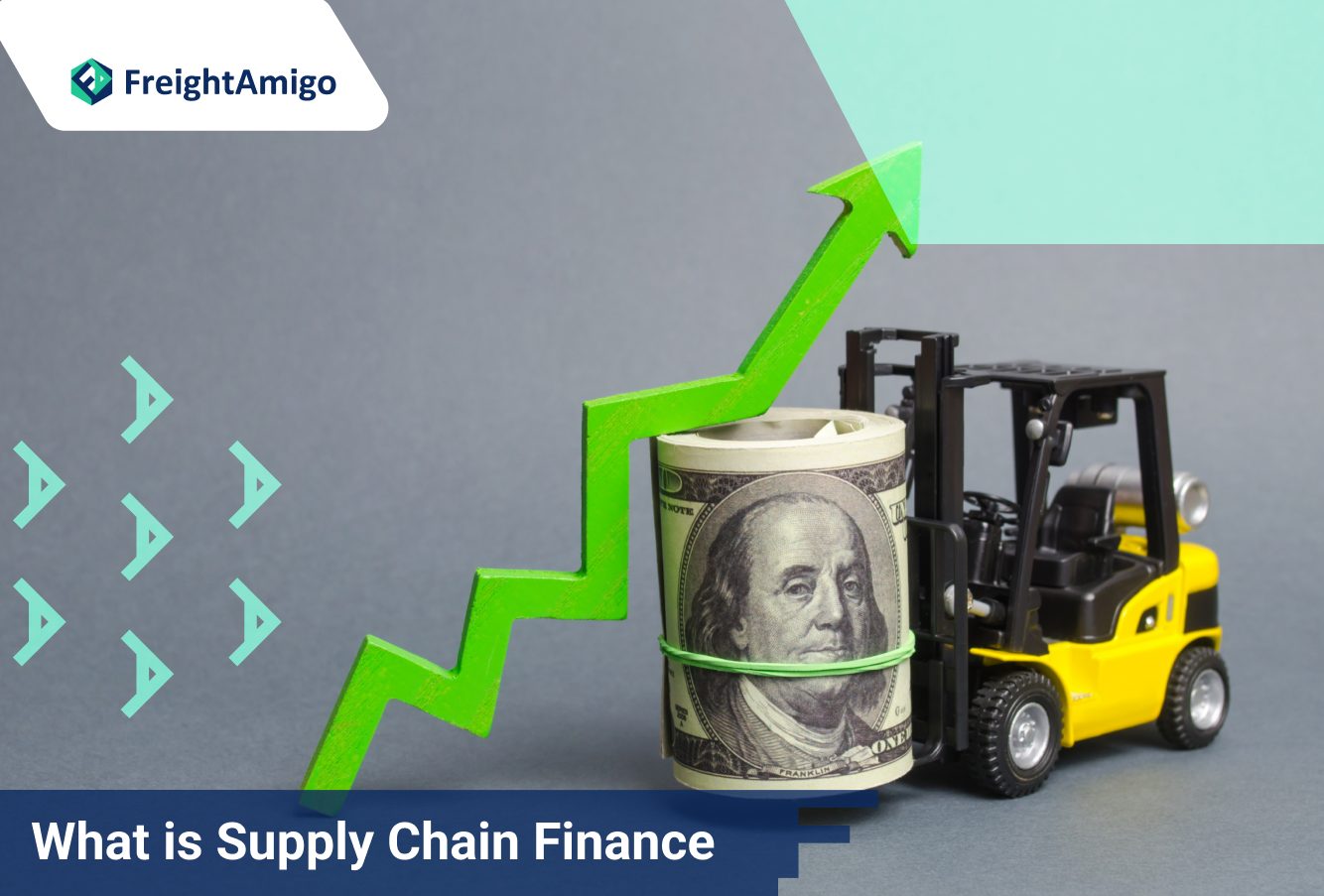What is Supply Chain Finance
Latest update on 27 March, 2024 by Aurora Park– Marketing Analyst at FreightAmigo
Supply chain finance, also known as supplier finance or reverse factoring, is a set of solutions that optimize cash flow by allowing businesses to extend their payment terms to suppliers while providing the option for suppliers to get paid early. In today’s global economy, supply chains are becoming increasingly complex, with multinational buyers on one end and a diverse group of suppliers in numerous countries on the other. This complexity has put pressure on corporations to unlock the working capital trapped in their supply chains. FreightAmigo has written an informative article that explores the concept of supply chain finance so businesses can effectively unlock trapped working capital and foster stronger financial relationships with their suppliers.
Want To Compare The Best Express, Air Freight, Sea Freight, Rail Freight & Trucking Rates So As To Have Better Control On Cost?
The Benefits of Supply Chain Finance
Supply chain finance offers a win-win situation for both buyers and suppliers. Buyers can optimize their working capital by extending payment terms, while suppliers can generate additional operating cash flow by receiving early payment. This helps to minimize risk across the entire supply chain.
One of the key advantages is that it is not a loan. It is an extension of the buyer’s accounts payable and is not considered financial debt. For suppliers, it represents a true sale of their receivables.
Another important aspect is that supply chain finance does not need to be tied to a single bank. This ensures flexibility and increased options for both buyers and suppliers.
Supply chain finance is also not factoring. With supply chain finance solutions, 100% of each invoice, minus a small transaction fee, is paid directly to the supplier. There is no recourse burden on the supplier once the invoice is paid. This is a significant advantage compared to traditional factoring arrangements.
Contrary to popular belief, supply chain finance is not limited to large companies. It provides value for firms of all sizes and credit ratings, including SME suppliers. Regardless of their scale, companies can benefit from implementing programs to unlock cash trapped in their supply chains.
Furthermore, it does not necessarily require the involvement of a bank. Buyers can choose to self-fund their programs or establish mixed programs where financing is shared by the buyer, capital markets, and financial institutions. This flexibility allows for tailored solutions that meet the specific needs of each organization.
How Does Supply Chain Finance Work?
To understand how it works, let’s take a look at the step-by-step process:
- The supplier sends their invoices to the buyer using the current policy and methodology.
- The buyer approves the invoices and uploads the approved invoice data, including payables and any applicable payment offsets, to the supply chain finance platform.
- The supplier can log on to the platform at any time to view all approved invoices. They have the option to do nothing and receive payment on the original maturity date, or they can sell or “trade” their receivables to a funder on the platform in exchange for early payment.
- If the supplier chooses to trade their receivables before maturity, 100% of the invoice amount, minus a small financing fee or discount, is transferred electronically to their bank account. In most cases, the supplier receives payment on the next business day. The financing rates are based on the buyer’s risk, not the supplier’s, making them highly attractive compared to other financing solutions.
- At maturity, the buyer pays the full invoice amount to the supplier or respective funder on the platform.
This strategic approach benefits both buyers and suppliers. Buyers can optimize their working capital by extending payment terms, while suppliers have the flexibility to receive early payment and improve their cash flow.
The Cost of Supply Chain Finance
One of the main advantages is that the buyer does not pay any fees to extend payment terms. The supplier, on the other hand, may incur a small discount if they choose to receive early payment. This cost structure makes supply chain finance an attractive option for both parties involved.
Who Can Benefit from Supply Chain Finance?
Supply chain finance is not limited to specific industries or company sizes. It works for companies in various sectors, including automotive, electronics, manufacturing, retail, and many others. Both buying organizations and suppliers can benefit from implementing supply chain finance solutions.
The FreightAmigo team specializes in working closely with buyers and suppliers to develop customized supply chain finance plans that fit the evolving needs of both parties. By leveraging their expertise, organizations can unlock the cash trapped within their supply chains and improve their overall financial performance.
Conclusion
Supply chain finance offers a range of benefits for both buyers and suppliers. By extending payment terms and providing early payment options, companies can optimize their working capital and improve cash flow. It is important to note that supply chain finance is not a loan, does not require a single bank, and is not limited to large companies. It provides value for organizations of all sizes and industries.
If you’re looking to optimize your working capital and improve cash flow, consider exploring the benefits of supply chain finance. Contact FreightAmigo today to learn how their solutions can help your organization thrive in today’s complex global supply chain landscape.
There Are Different Options For Cargo Transportation. If You Want To Choose The Most Convenient And Suitable Solution, It Is Best To Have The Full Support Of Logistics Experts! If You Are Planning To Ship Goods Overseas, Please Go To The FreightAmigo Page For Inquiries.
Read More:
What is a Container Yard (CY) in Shipping & Logistics | FreightAmigo
What is General Rate Increase (GRI)? | FreightAmigo
What is IOR | Definition & Importance | FreightAmigo
If you have any inquiries on logistics/supply chain, feel free to contact FreightAmigo now:
Chat with us online | Hotline: +852 28121686 | WhatsApp: +852 27467829










































